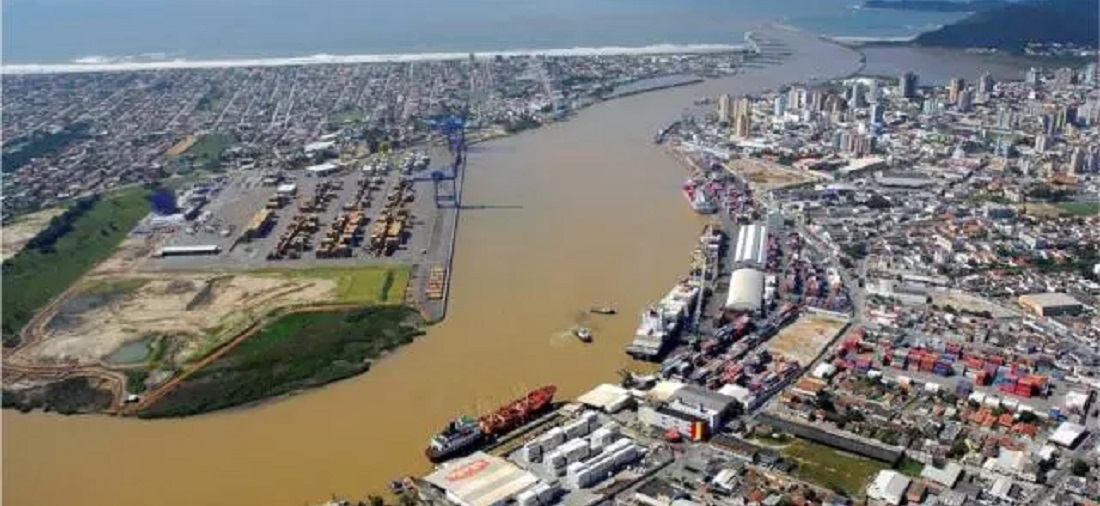
Massive investment of BRL 315 million planned for Itajaí’s liquid bulk terminal
Jun, 06, 2023 Posted by Gabriel MalheirosWeek 202323
The Institute of the Environment (IMA) is currently reviewing the preliminary study for the proposed Liquid Bulk Terminal in Itajaí. The project aims to utilize a 101.7 thousand square meter area within the Itajaí Shipyard in Barra do Rio.
With a budget of R$ 315 million, the terminal’s construction is projected to take three years and create 200 job opportunities during this period. Once operational, the terminal will employ 75 individuals.
The Environmental Impact Report (Rima) analysis marks the initial phase of the licensing process, which is expected to be very thorough due to the scale of the project.
The study provides a comprehensive breakdown of the project, including its features, environmental impacts, and compensatory measures. The IMA has begun a 45-day period for public comments on the study, starting from Friday.
The liquid bulk terminal will serve as a hub for the reception, storage, and distribution of fuel and chemical products. The infrastructure will encompass storage tanks, a pump yard, tank truck operations platforms, and pipelines connecting to a planned pier along the riverbank. Additionally, the area will feature administrative facilities, a cafeteria, a workshop, and a storeroom.
The investment comes from Elcano, a Spanish shipping company that has controlled the shipyard since its acquisition in 2008. The proposed terminal’s implementation is divided into four phases, accommodating up to 17 storage tanks for liquid bulk, including fuels such as gasoline, diesel, biodiesel, and ethanol, as well as various chemical products.
The terminal will feature a mooring berth capable of receiving liquid bulk vessels up to 55,000 dwt, with a capacity to transport around 350,000 barrels of products. The pier will have a mooring, berthing structures, and a general platform.
The project’s location, less than a kilometer from the port and in an area conducive to ship maneuvers, and its proximity to road access points were carefully considered. The fuel stored in the tanks will be distributed via trucks utilizing loading and unloading platforms.
During the construction phase, approximately 200 direct jobs will be created, with a focus on hiring local labor. The project will require skilled professionals such as mechanics, electricians, welders, divers, and crane operators, as well as engineers from various disciplines. Other positions will also be available, including servants, masons, painters, and administrative staff.
According to the project study, the terminal’s implementation takes into account the demand for fuel storage, which is currently insufficient to meet national market needs.
“Thus, there is an investment opportunity in port and terminal facilities that facilitate the inland distribution of large volumes of fuel, typically located in areas with pipeline or rail connections to ports,” states the document.
According to the study, the logistical bottleneck in this type of infrastructure stems from limited storage capacity and inadequate expansion investments. “Expanding reception facilities for larger vessels, modernizing port operations, and expanding waterway routes to enhance productivity are all necessary,” it argues.
The entrepreneur behind the project emphasizes that the terminal’s construction aligns with the current state of the national market. Furthermore, apart from contributing to infrastructure expansion, it will foster socio-economic development in the country’s southern region. The company asserts that the installation of the terminal has received technical and environmental viability.
Source: Informativo dos Portos
To read the original news report, see: https://www.informativodosportos.com.br/terminal-de-combustiveis-pode-ser-construido-em-itajai/
-
Other Cargo
Jul, 05, 2023
0
Fertilizer deliveries dip 4.4% in Brazil in 2023
-
Grains
Sep, 28, 2023
0
Brazil: soy exports expected to total 99 million tonnes in 2024
-
Trade Regulations
Feb, 24, 2022
0
Commodity supplies at risk as Russia invades Ukraine
-
Grains
Apr, 12, 2024
0
Brazil Sees Surge in Ag Input Imports Albeit at Lower Prices


